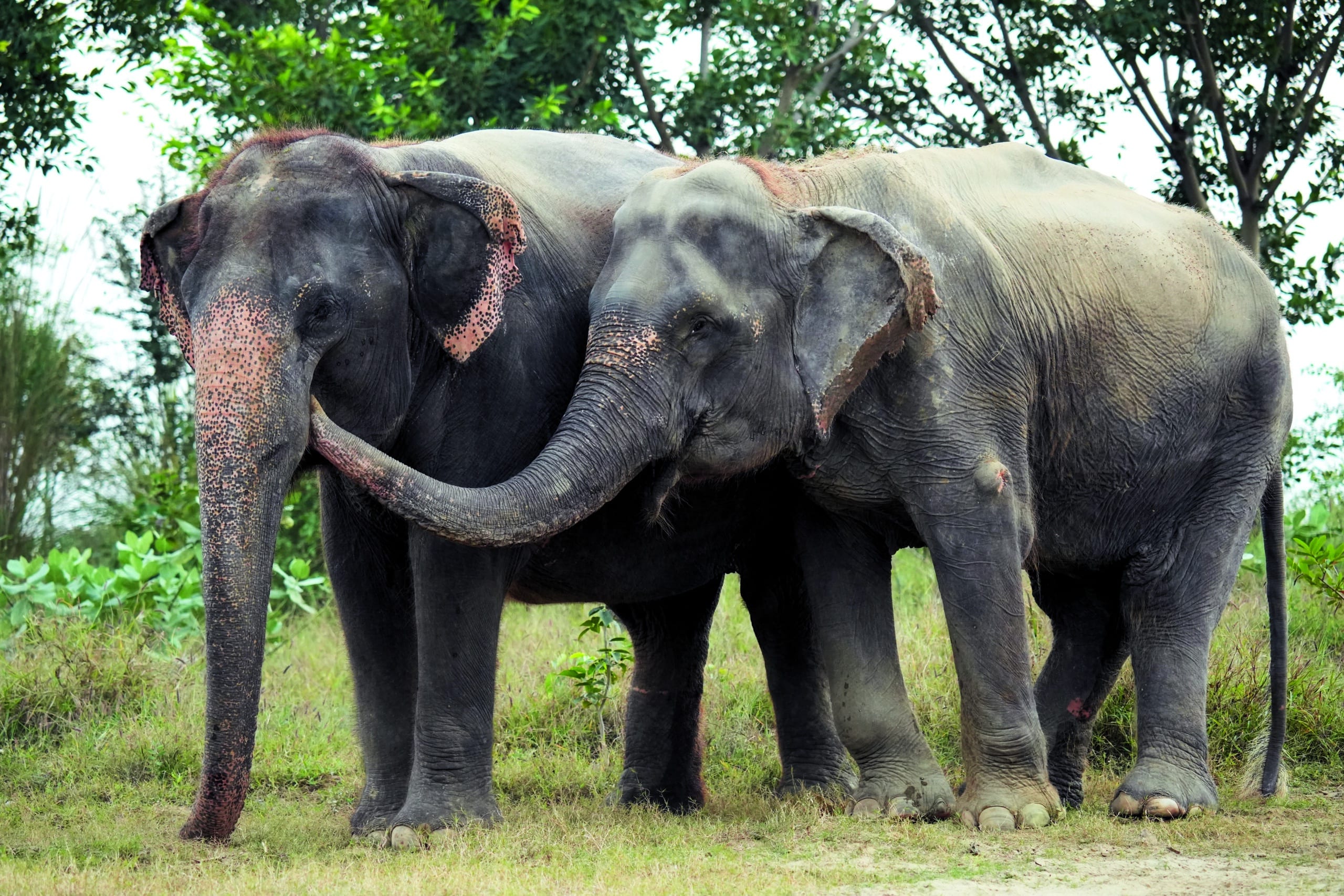You might remember Kalpana—I am happy to report that this year she celebrates her fifth rescue anniversary at Wildlife SOS. Formerly exploited and abused as a ‘begging’ elephant in Uttar Pradesh, Kalpana was rescued in 2019 and brought to the Wildlife SOS Elephant Hospital Campus (EHC) in Mathura for comprehensive...
One of Humane Society International’s most high-impact programs, Street Dog Defender, has the ambitious goal of improving the lives of 300 million street dogs around the world. These are animals who typically survive outside of homes or commercial locations and often live on the edge, without regular sources of food or water, let alone any meaningful prospect of veterinary care when they are ill or injured. Too often, their lives are harsh and shortened by food scarcity, debilitating disease, culling by government officials, or capture and killing by dog meat traders.
In the Philippines, there is a very large number of street dogs, more so than in other South Asian or African countries. There is also a high incidence of rabies, with 98 percent of human rabies cases stemming from dog bites. In the past, the government’s way of dealing with the public health challenge was to conduct mass killings of street dogs, with the rationale of mitigating the threat.
Nine years ago, HSI aimed to turn around the circumstances for these animals by forging an innovative and humane path. Our program combines basic care, spay-or-neuter programs, rabies vaccinations, dog population surveys, community outreach, and data collection to prove the efficacy of these programs to local and national governments. It’s been working. Remarkably so.
Using a state-of-the-art mobile phone app, HSI has recorded 86,218 vaccinations of street dogs throughout the Philippines. Image: Frank Loftus
In September 2016 we started our first rabies eradication program in a district of Quezon City in the metropolitan Manila area, in partnership with the Quezon City veterinary department. Using a state-of-the-art mobile phone app that helps us track the vaccinations in real time, we have so far recorded 20,000 vaccinations in one division of the city alone (and 86,218 countrywide), and no rabies cases have been reported in the area since. Quezon City was once among the top three places in the Philippines for rabies cases; today, it has dropped to fourth place, and the rabies situation continues to improve, even as the dogs are getting healthier and leading better lives.
Impressed by our numbers, which greatly surpassed previous government dog population estimates, the Philippines Bureau of Animal Industries (BAI) has signed a Memorandum of Understanding (MoU) with HSI for 2017 to replicate this model across the entire country to help with its national goal of eradicating rabies by 2020. Last month, the BAI recognized HSI’s work with street dogs by giving the organization a highly competitive award.
Besides the Philippines, HSI has logged many successful Street Dog Defender projects across Asia and other parts of the globe, such as Latin America, and we are now building partnerships with national governments as they abandon outdated and cruel methods of catching and culling dog populations, replacing them with humane, scientifically proven, and effective management solutions. Currently, the HSI Asian street dog program is also working with national governments in Bangladesh, Bhutan, India, Nepal, and Sri Lanka.
Our hands-on programs engage a wide variety of local partners. In the Philippines, these include not just local animal non-governmental organizations, municipalities, and federal authorities but also the Philippines Veterinary Medical Association, the Philippines Animal Hospital Association, local Rotary clubs, and volunteers from the Armed Forces of the Philippines. By conducting population surveys and by gathering data that allow us to make detailed evaluations of program effectiveness, we are able to market the humane approach to authorities who demonstrate some initial skepticism. We will shortly sign an MoU with the government of Mauritius to launch a pilot dog management project in that country and we are engaged in similar outreach projects in Guam, Guyana, and Puerto Rico.
The HSI Asian street dog program is currently working with national governments in Bangladesh, Bhutan, India, Nepal, and Sri Lanka. Image: HSI
Thanks in considerable part to the country’s embrace of HSI’s approach, the Philippines is now well positioned to eradicate rabies within the next 10 years. Officials have sufficient vaccine available and the logistic support to deliver it. HSI continues to conduct dog population surveys there, and we have conducted capacity-building programs and workshops on catching dogs with nets instead of metal loops, humane methods of euthanasia to replace gas chambers, and appropriate housing for dogs. Most importantly, we have spread high volume and minimally invasive spay-and-neuter techniques among veterinarians across the country. We have trained more than 250 local veterinarians in these techniques and empowered many of these veterinarians to lead spay/neuter work in the Philippines. Our trainees create networks of government veterinarians and private practitioners to provide communities with no-cost sterilizations.
There are now mobile clinics available in some local areas, while other places, like Cebu City, have a permanent animal clinic. Dr Alice Utlang from the Cebu City Veterinary Department signed an MoU with us to change dog management in Cebu City eight years ago. She opened the first dedicated Animal Birth Control Center in March 2009, and has since closed gas chambers for killing dogs, replaced wire nooses for dog-catching with humane nets, and launched an adoption program in the city pound.
As Dr. Utlang later reported:
“When we started to offer spay and neuter to our community we had 10 dogs lined up, [but] today we spay and neuter up to 200 dogs in a day.”
She is certain that spay and neuter has changed the way the city pound operates today because there are fewer dogs coming in, leaving more time for individual dogs to be adopted and enjoy a new lease on life.
Life does not have to be horrid and dark for street dogs, and we are showing a different way to deal with these feeling creatures and demonstrating that a strategic, responsible approach produces better outcomes for dogs and for all members of the community.




